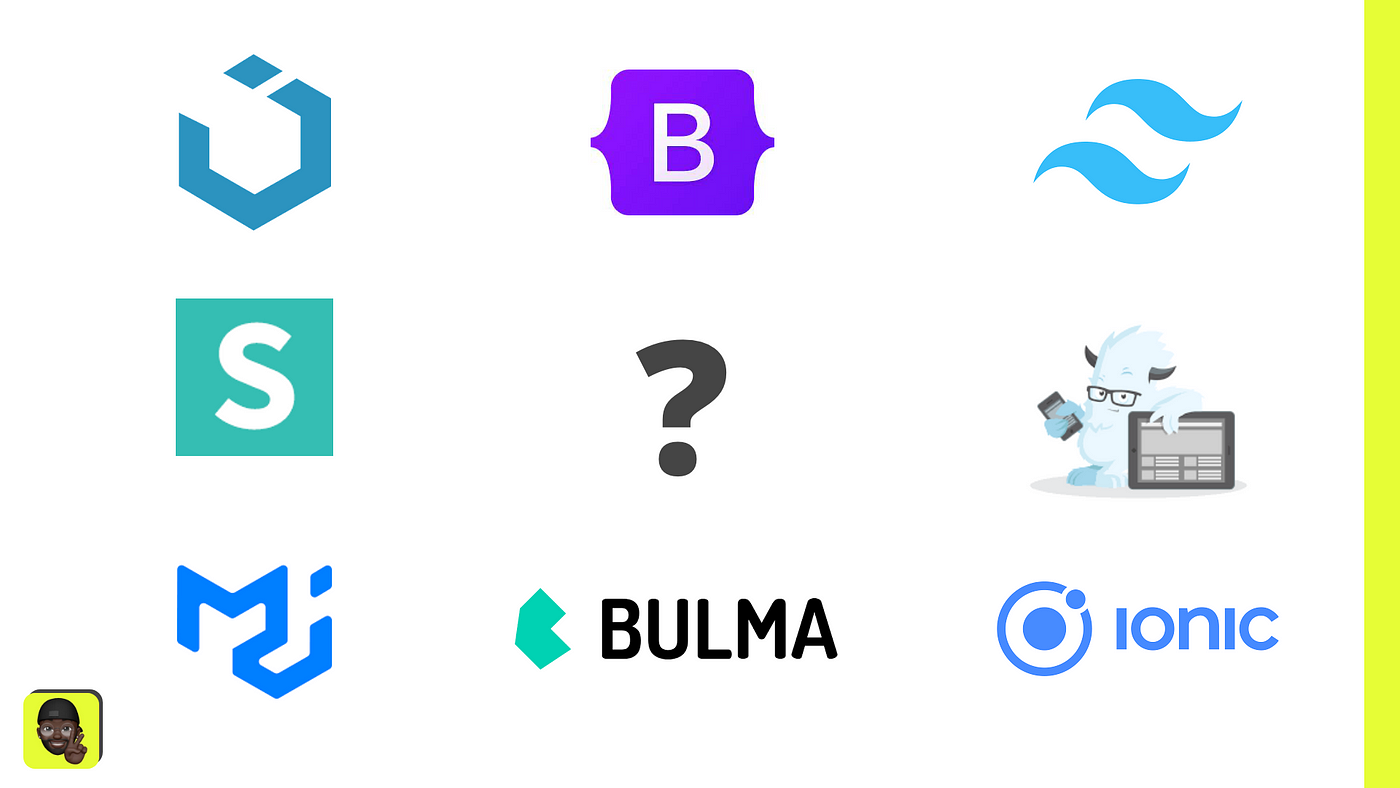Click Info Track: Your Daily Dose of Insights
Stay updated with the latest trends and information across various topics.
CSS Frameworks: The Swift Secret to Stylish Websites
Discover the game-changing CSS frameworks that elevate your website's style effortlessly. Unleash the secret to stunning designs!
Top 5 CSS Frameworks to Elevate Your Web Design
When it comes to enhancing your web design, CSS frameworks are indispensable tools that can streamline your development process while ensuring a visually appealing interface. In this article, we will explore the top 5 CSS frameworks that can help elevate your web design to new heights. These frameworks not only promote best practices but also provide a robust foundation for responsive design, making it easier for developers to create user-friendly websites.
- Bootstrap - This is perhaps the most popular CSS framework, known for its extensive collection of pre-designed components and grid systems. It allows for quick prototyping and responsive layout designs.
- Foundation - Created by ZURB, Foundation is highly customizable and aimed at building responsive and accessible email templates.
- Bulma - A modern CSS framework based on Flexbox, Bulma is known for its simplicity and ease of use, making it a favorite among developers.
- Tailwind CSS - Unlike traditional frameworks, Tailwind provides utility classes that allow for more creative freedom in designing unique layouts without predefined components.
- Materialize CSS - This framework follows the principles of Material Design introduced by Google, offering pre-styled components that ensure consistency across your web applications.

Understanding CSS Frameworks: What They Are and Why You Need Them
CSS frameworks are pre-prepared libraries that make it easier to develop websites by providing a standardized set of styles, layouts, and components. These frameworks come equipped with ready-to-use code samples and design principles that allow developers to create responsive and visually appealing websites without starting from scratch. Some popular CSS frameworks include Bootstrap, Foundation, and Bulma. By utilizing these frameworks, developers can save time and ensure consistency across different web projects, ultimately leading to faster deployment and improved efficiency.
There are several reasons why you need a CSS framework for your web development projects. Firstly, they promote rapid development by offering predefined styles and components, reducing the time spent on coding and debugging. Secondly, they enhance the responsiveness of web applications, as most frameworks are designed to be mobile-friendly out of the box. Furthermore, using a CSS framework not only ensures cross-browser compatibility but also fosters collaboration among team members, as everyone can work with a familiar set of tools and styles. Ultimately, embracing a CSS framework can lead to a robust, scalable, and maintainable codebase.
Can CSS Frameworks Improve Your Website's Performance?
When considering web development, CSS frameworks can significantly enhance your website's performance. These frameworks, such as Bootstrap or Tailwind CSS, provide pre-defined styles and components that streamline the design process. By utilizing a CSS framework, developers can reduce the amount of custom code they write, leading to faster load times due to optimized CSS files. Additionally, frameworks often come with built-in responsive design capabilities, which means your site will perform well across various devices without extra effort.
Another advantage of using CSS frameworks is the consistency they bring to your website's design. This consistency not only improves the user experience but can also aid in maintaining better performance metrics. Since frameworks are regularly updated, they frequently include performance enhancements and best practices for coding, making it easier to create a site that adheres to modern standards. In summary, leveraging a CSS framework can lead to a more efficient coding process and ultimately result in a website that loads faster and provides a smoother user experience.